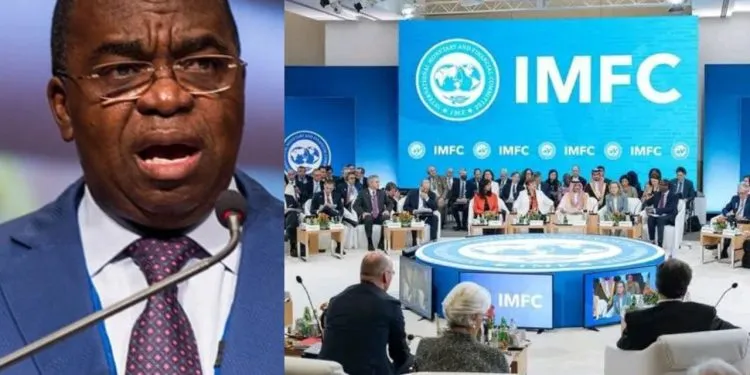By Beatrice Manka’a
Cameroon’s delegation, led by Finance Minister Louis Paul Motazé, has engaged in discussions at the 2024 Spring Meetings of the International Monetary Fund (IMF) and the World Bank Group in Washington, DC.
The delegation assessed ongoing projects and reforms aimed at stimulating economic growth in the country.
During the meetings, various sectors including energy, water security, urban development, transportation, education, agriculture, climate change, and local governance were reviewed.
Talks also focused on providing technical assistance to youth in key sectors.
Minister Motazé highlighted the importance of discussions on public finance to explore potential technical assistance in customs and tax matters.
“We attended meetings, including discussions on the public finance department of the IMF. This was to explore technical assistance and support that Cameroon can receive in customs and tax matters,” Motazé stated.
The Ministries of Basic Education, Decentralization, and Justice received commendation for efforts to facilitate the issuance of birth certificates.
Additionally, progress on infrastructure projects such as the construction of dams and roads, including the Bamenda-Babadjou road, was lauded.
IMF officials praised Cameroon’s resilience amid global economic challenges.
“We have been very happy to notice that some of our partners, mainly our partners at the IMF, have a very positive impression of all that we’re doing,” Minister Motazé noted.
However, the government was urged to further strengthen tax reforms and exercise caution with public spending. Discussions included plans for a support program over the next 12 to 18 months, with confidence expressed in the collaborative relationship between Cameroon and the IMF.
Furthermore, Cameroon held discussions with top executives of the Development Bank of Central Africa, where agreements were made to ensure the capitalization of the sub-regional bank to enable member countries to scale up their shares.
IMF’s economic growth projections for sub-Saharan Africa in 2024 were discussed, highlighting the region’s growing workforce.
The importance of investment in education to achieve universal primary and secondary enrollment by 2030 was emphasized.
New IMF research indicates that doubling education spending as a share of GDP is necessary to close existing gaps and ensure sustainable development.



